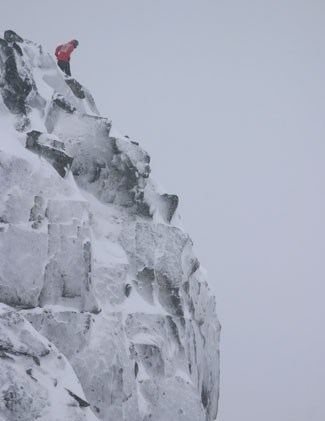Three serious injuries in weekend event
Organizers of the Canadian Freeskiing Championships are confident there will be no concerns insuring future events despite the fact that three competitors were seriously injured during last week’s competition.
Local judge and professional skier Joe Lammers said he had never seen so many serious injuries at one freeskiing event.
"I’ve been involved in 12 competitions as either a competitor or judge and this is the first time I’ve seen so many injuries… but I guess sometimes that’s just the way the cookie crumbles," Lammers said.
Frenchman Thomas Diet and U.S. skier Rob Wright were airlifted to hospital while Japan’s big-air expert Daisuke Sasaki was transported down the mountain on a toboggan because there was some concern about his blood pressure.
Diet, who is the reigning world No.10, concussed himself attempting a 30-foot drop near rocks. Wright broke his pelvis in much the same manner.
Sasaki, who won the 2003 Sick Bird award for the most radical run in the competition, sustained a fracture in his back when he misjudged a landing on hard snow.
"I think it was a combination of the stars just being aligned wrongly and the indiscretion of some of the competitors," Lammers said.
"Of course there’s residual risk, but the competitors are good enough to overcome that."
Despite the sometimes soggy weather and periods of heavy fog Lammers said the conditions were good and could not be blamed for any part in the injuries.
"The conditions were way worse last year and no people were injured.
"But it’s really up to the competitors to know what the conditions are doing and to ski them.
"I just hope this doesn’t fog the public’s perspective of it (the competition) in any way as just some kind of huck-fest because it’s about skiing.
"The best skiers always come out on top."
President of the International Freeskiing Association David Swanwick did not want to mention names but he confirmed that all the injured skiers had apologized for putting the competition in jeopardy.
"I suppose when it rains it pours because we haven’t had any real serious accidents for a while, then we have three on the same day," Swanwick said.
"With the first guy it was an error of judgement because he took a 30 to 40 foot drop and locals had told him not to do it.
"I spoke to him afterwards and he said he felt like an idiot.
"The second guy, who broke his pelvis, missed his take-off point by 50 feet and when you’re going to do that, then you’ve got to expect problems.
"And the Japanese guy was a bit unlucky I think, I’d say he hit a shallow snow pack."
Since 9/11 insurance costs have skyrocketed world-wide and many sports have suffered. Most extreme sports, like freeskiing, have had to deal with notable increases in insurance premiums because the risk of injury is perceived as being greater.
Concerns with liability and insurance costs are not a new thing in the ski industry, either, especially at the extreme end of the industry.
In the 1970s freestyle skiing had much the same image as freeskiing does now and public liability insurance and injury caused significant problems for the professional freestyle tour.
The tour recovered but several organizations lost a lot of money in the process.
Swanwick said it costs Mountain Sports International, which is the company that managed the freeskiing championships, $50,000 annually for event insurance and this could potentially rise if competitors begin to get injured on a regular basis.
"Insurance is always a concern but it’s also our desire to organize these events because these athletes are like our friends and if they’re going to go out there and get hurt then we’re going to lose the desire pretty quickly," he said.
"We’re not making much money from these events.
"My company is, at best, braking even in the seven years I’ve been doing this."
Despite the obvious dangers of freeskiing and the costs involved, the popularity of the sport seems to be growing exponentially.
There were 60 spots available for qualifiers in Whistler but a total of 91 competitors signed to compete and Swanwick said there was similar interest in the next round of competition in Utah.




